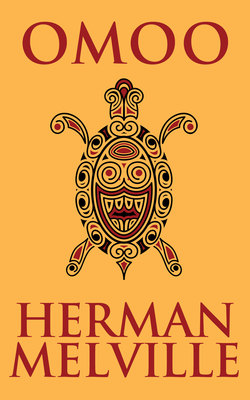Читать книгу Omoo - Herman Melville - Страница 23
На сайте Литреса книга снята с продажи.
ОглавлениеChapter 18
Tahiti
AT early dawn of the following morning we saw the Peaks of Tahiti. In clear weather they may be seen at the distance of ninety miles.
"Hivarhoo!" shouted Wymontoo, overjoyed, and running out upon the bowsprit when the land was first faintly descried in the distance. But when the clouds floated away, and showed the three peaks standing like obelisks against the sky; and the bold shore undulating along the horizon, the tears gushed from his eyes. Poor fellow! It was not Hivarhoo. Green Hivarhoo was many a long league off.
Tahiti is by far the most famous island in the South Seas; indeed, a variety of causes has made it almost classic. Its natural features alone distinguish it from the surrounding groups. Two round and lofty promontories, whose mountains rise nine thousand feet above the level of the ocean, are connected by a low, narrow isthmus; the whole being some one hundred miles in circuit. From the great central peaks of the larger peninsula—Orohena, Aorai, and Pirohitee—the land radiates on all sides to the sea in sloping green ridges. Between these are broad and shadowy valleys—in aspect, each a Tempe—watered with fine streams, and thickly wooded. Unlike many of the other islands, there extends nearly all round Tahiti a belt of low, alluvial soil, teeming with the richest vegetation. Here, chiefly, the natives dwell.
Seen from the sea, the prospect is magnificent. It is one mass of shaded tints of green, from beach to mountain top; endlessly diversified with valleys, ridges, glens, and cascades. Over the ridges, here and there, the loftier peaks fling their shadows, and far down the valleys. At the head of these, the waterfalls flash out into the sunlight, as if pouring through vertical bowers of verdure. Such enchantment, too, breathes over the whole, that it seems a fairy world, all fresh and blooming from the hand of the Creator.
Upon a near approach, the picture loses not its attractions. It is no exaggeration to say that, to a European of any sensibility, who, for the first time, wanders back into these valleys—away from the haunts of the natives—the ineffable repose and beauty of the landscape is such, that every object strikes him like something seen in a dream; and for a time he almost refuses to believe that scenes like these should have a commonplace existence. No wonder that the French bestowed upon the island the appellation of the New Cytherea. "Often," says De Bourgainville, "I thought I was walking in the Garden of Eden."
Nor, when first discovered, did the inhabitants of this charming country at all diminish the wonder and admiration of the voyager. Their physical beauty and amiable dispositions harmonized completely with the softness of their clime. In truth, everything about them was calculated to awaken the liveliest interest. Glance at their civil and religious institutions. To their king, divine rights were paid; while for poetry, their mythology rivalled that of ancient Greece.
Of Tahiti, earlier and more full accounts were given, than of any other island in Polynesia; and this is the reason why it still retains so strong a hold on the sympathies of all readers of South Sea voyages. The journals of its first visitors, containing, as they did, such romantic descriptions of a country and people before unheard of, produced a marked sensation throughout Europe; and when the first Tahitiana were carried thither, Omai in London, and Aotooroo in Paris, were caressed by nobles, scholars, and ladies.
In addition to all this, several eventful occurrences, more or less connected with Tahiti, have tended to increase its celebrity. Over two centuries ago, Quiros, the Spaniard, is supposed to have touched at the island; and at intervals, Wallis, Byron, Cook, De Bourgainville, Vancouver, Le Perouse, and other illustrious navigators refitted their vessels in its harbours. Here the famous Transit of Venus was observed, in 1769. Here the memorable mutiny of the Bounty afterwards had its origin. It was to the pagans of Tahiti that the first regularly constituted Protestant missionaries were sent; and from their shores also, have sailed successive missions to the neighbouring islands.
These, with other events which might be mentioned, have united in keeping up the first interest which the place awakened; and the recent proceedings of the French have more than ever called forth the sympathies of the public.
